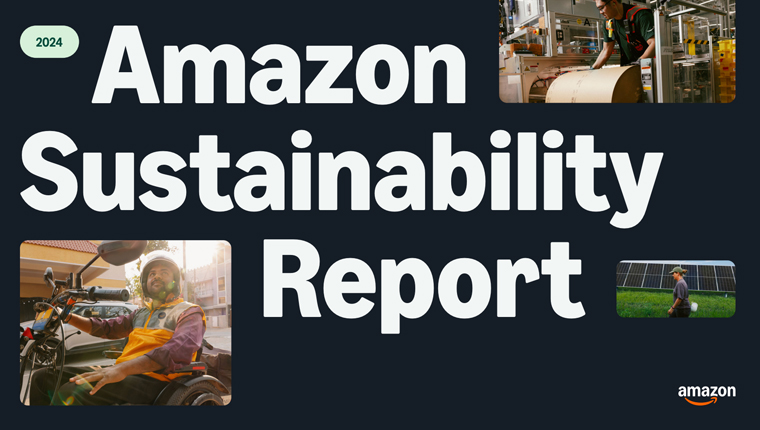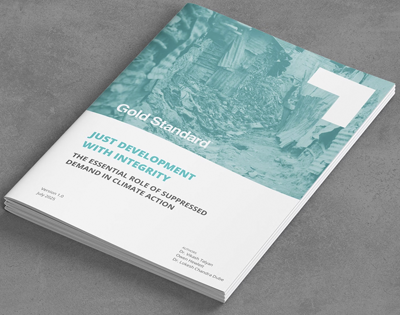Ambitious climate goals can help drive action, but they can’t always be met. What should companies do when their efforts fall short?
In the past few decades, we’ve seen remarkable progress in the public acknowledgement of climate action as an important business imperative. As someone who’s been working in the sustainable business space since before my beard was gray, I celebrate this development. After all, we are in the midst of an all-encompassing global crisis, and we absolutely need the business world to step up if we are going to maintain a livable climate.
However, my enthusiasm is also tinged with a healthy dose of skepticism. Because, while targets and goals can help drive the scale of change, we need on a planetary level, they’ll only do so if we actually reach them. And that’s where things don’t always go to plan. (It’s easy, after all, to get a CEO to commit to Net Zero by 2050 if they’ll be long-since retired before accountability for that goal really sets in.)
As research by Berkeley Haas Business School professor Sharn Kim has shown, nearly 40% of companies missed or abandoned their 2020 climate targets — a pattern that established early warning signs about the challenges of corporate climate commitments. While it’s imperative that companies do all they can to achieve the goals they set, the reality is that some will inevitably be missed — sometimes despite the best efforts of those tasked with achieving them. Particularly in cases where overly vague or unrealistic goals were set in the first place, a recalibration may actually be in everyone’s best interests. Still, how companies respond to evolving benchmarks can determine whether they maintain stakeholder trust or face lasting reputational damage.
The transparency imperative
Of course, the science tells us that every ton of carbon emitted matters, and that means that any missed climate goal is a missed opportunity to move the needle on decarbonization. Yet sometimes, just as damaging as the miss itself is the manner in which companies handle communicating that miss.
Coca-Cola, for example, had previously set a very public climate-adjacent goal of delivering 25% of its products in reusable or refillable containers by 2030. When it replaced that goal with a less ambitious commitment of 35 to 40% recycled content by 2035, it faced significant backlash not just for missing the original target, but for the “quiet” way it removed the commitment from its website ahead of a global plastics summit. Similarly, Amazon’s deletion of its Shipment Zero program was reportedly discovered by Will Evans of the Center for Investigative Reporting, not initially announced or publicly explained by the company itself. This resulted in negative headlines and criticism from internal employee groups — both of which drew attention away from the fact that Amazon continues to invest heavily in decarbonization across its operations, and could credibly be argued to be a leader in the space.

Context matters
Transparency doesn’t just mean announcing a goal revision; it means explaining why. Companies can even use these moments to build trust and expand the conversation. When a company misses shipping decarbonization targets because sustainable aviation fuels remain prohibitively expensive compared to traditional jet fuel, for example, they could use this as an opportunity to explain what needs to happen on the societal level, and to advocate for policy changes that would level the playing field.
“Companies cannot transform the operating environment alone, so calling on policy makers to also do their part is key to creating the ecosystem where a sustainable economy is possible,” says Michael Rohwer, an independent sustainability consultant. In other words, even among some of the largest corporations in the world, ‘we can’t do this alone,’ is a legitimate perspective when it comes to society-wide decarbonization.
No one-size-fits-all solution
The appropriate response to missing climate goals depends heavily on company profile, and the original communication strategy around the goals. A smaller or more business-to-business focused company is likely to face different stakeholder pressures than a consumer brand that will likely have a target on its back from activist groups. Similarly, a company that built its entire brand narrative around a specific sustainability target faces different reputational risks than one that included the goal as part of a broader commitment portfolio.
Consider the contrasting public responses to Google’s abandonment of carbon neutrality versus Shell’s weakening of its emissions reduction targets. In its 2024 Environmental Report, Google framed its shift as an “evolution of strategy” toward net-zero goals, making a credible case for why carbon offsets were insufficient for meaningful climate action. The response was generally positive, with media coverage focusing on the company’s enhanced ambition rather than the abandoned commitment.
Shell’s approach was different — the company cited “too much uncertainty” in the energy transition trajectory as justification for removing its 2035 milestone entirely. While nearly 80% of Shell shareholders supported the revised strategy, media headlines were predominantly negative, with activist groups questioning the company’s ultimate net-zero commitment.
The difference lies not just in messaging, but in the underlying strategic coherence. Google positioned its change as a move toward more meaningful action, while Shell’s revision was perceived as a retreat from ambition. (Of course, it’s also relevant here that Shell is primarily and most prominently in the business of extracting and producing fossil fuels that emit vast amounts of carbon — meaning the level of public trust will be low.)






















